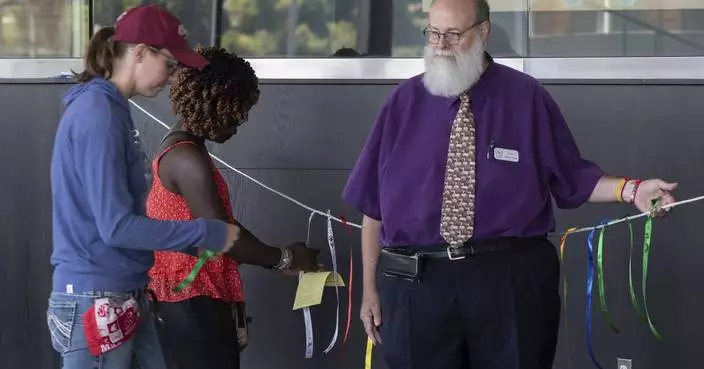The animal was saved after becoming tangled in a football goal in Hove, Sussex
The RSPCA has issued a warning about the dangers sports nets pose to animals after amputating the tail of a fox trapped in a practice goal.
The fox’s back legs had become stuck in the netting of the broken goal in a back garden in Hove, Sussex, and the struggle to free itself had only tangled the netting further.
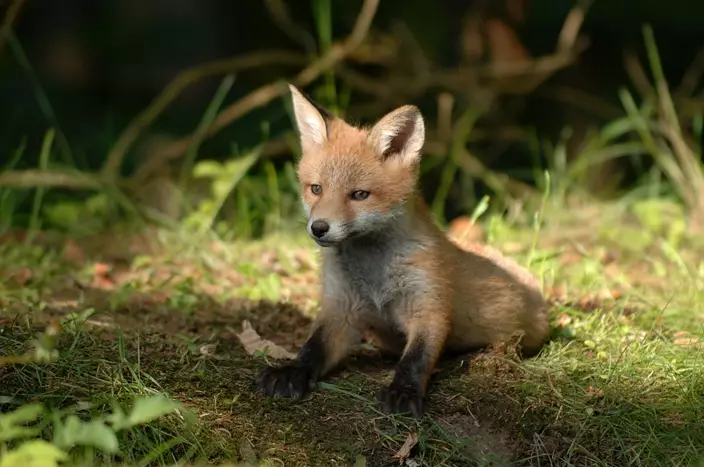
Design photo
Claire Goddard, an RSPCA animal collection officer, said: “This little fox was lucky, he could easily have suffered fatal injuries or, if not spotted, died a slow and painful death tangled in the net.
“That’s why it’s so important that netting isn’t left unattended. Sport nets like football goals are often set up and left unattended in gardens and parks with many people not realising they can be death traps for wildlife. ”
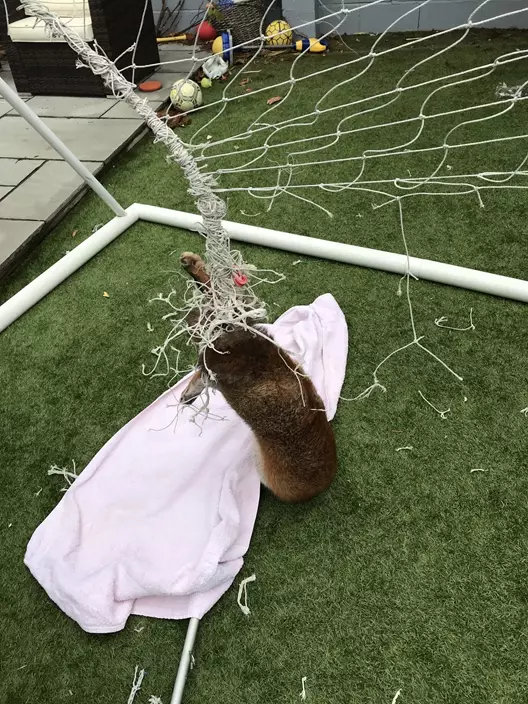
The end of the fox’s tail had to be amputated after it became tangled in a net in Hove, Sussex (RSPCA/PA)
Although the fox was eventually freed, the end of its tail had to be amputated, drawing comparisons with Fantastic Mr Fox from the classic Roald Dahl story.
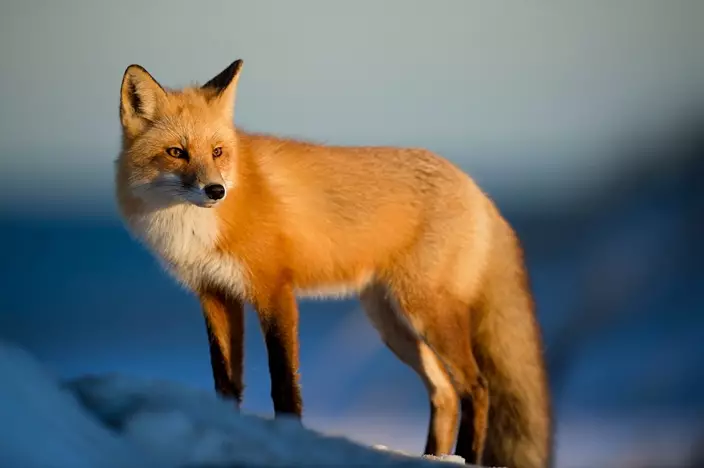
Design photo
The RSPCA recommended all nets used for sports should be stored safely and any other netting in gardens could be replaced with a solid metal mesh to stop animals becoming trapped.
“It is an extremely frightening experience for any animal but particularly for wildlife as they are so wary of human contact,” Ms Goddard added.
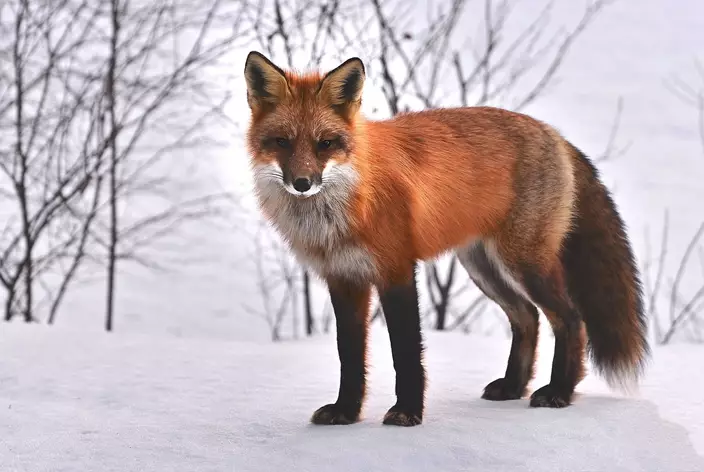
Design photo
BANGKOK (AP) — Thai wildlife officials laid out a plan on Wednesday to bring peace to a central Thai city after at least a decade of human-monkey conflict.
The macaques that roam Lopburi are a symbol of local culture, and a major tourist draw. But after years of dangerous encounters with residents and visitors and several failed attempts to bring peace with population controls, local people and businesses have had enough.
The monkeys frequently try to snatch food from humans, sometimes resulting in tussles that can leave people with scratches and other injuries. But outrage grew in March when a woman dislocated her knee after a monkey pulled her off her feet in an effort to grab food, and another man was knocked off a motorcycle by a hungry monkey.
Authorities hope to round up some 2,500 urban monkeys and place them in massive enclosures, said Athapol Charoenshunsa, the director-general of the Department of National Parks, Wildlife and Plant Conservation. They'll work with wildlife experts to find a way for a limited number of monkeys to stay at liberty in the city, he added.
“I don’t want humans to have to hurt monkeys, and I don’t want monkeys to have to hurt humans,” he told reporters during a news conference in Bangkok.
An official monkey catching campaign was launched week, prioritizing more aggressive alpha males. It has caught 37 monkeys so far, most of whom have been placed put under the care of wildlife authorities in the neighboring province of Saraburi, while others were sent to the Lopburi zoo.
Officials said they plan to capture the rest of the monkeys once the enclosures are complete, especially those in the residential areas. Separate cages will be prepared for different troops of monkeys to prevent them from fighting.
Athapol said he expects the first phase of the operation to start within weeks, and believes the huge cages will be able to contain thousands of them and “will solve the problem very quickly.”
The monkeys are a symbol of the province, about 140 kilometers (90 miles) north of Bangkok, where the ancient Three Pagodas temple celebrates an annual “Monkey Buffet” festival, and they're commonly seen throughout the city. Macaques are classified as a protected species under Thailand’s wildlife conservation law.
Some have blamed the city's monkey troubles on tourists and residents feeding the animals, which they say drew monkeys into the city and boosted their numbers, as well as getting them accustomed to getting food from humans.
But an earlier effort to limit feeding may have made things worse, some residents say. Local officials began threatening fines for feeding monkeys outside a few designated areas around the main tourist attractions in recent years. But those feeding areas were dominated by a few troops of the highly territorial creatures, while rival bands grew hungry and turned to harassing humans in other areas for food even more.
Athapol said people shouldn’t see monkeys as villians, saying that the authorities might have not been efficient enough in their work to control the simian population.
People also need to adapt to the city’s monkeys, said Phadej Laithong, director of the Wildlife Conservation Office, explaining that a lack of natural food sources prompts the animals to find food wherever they can, including from humans.
Previous control measure have fallen short. From 2014-2023, the wildlife authorities neutered about 2,600 Lopburi monkeys.
Athapol said they are also working in other areas of Thailand that are facing problems with monkeys, such as Prajuab Kiri Khan and Phetchaburi. He said 52 of the country's 77 provinces report frequent problems from monkeys.
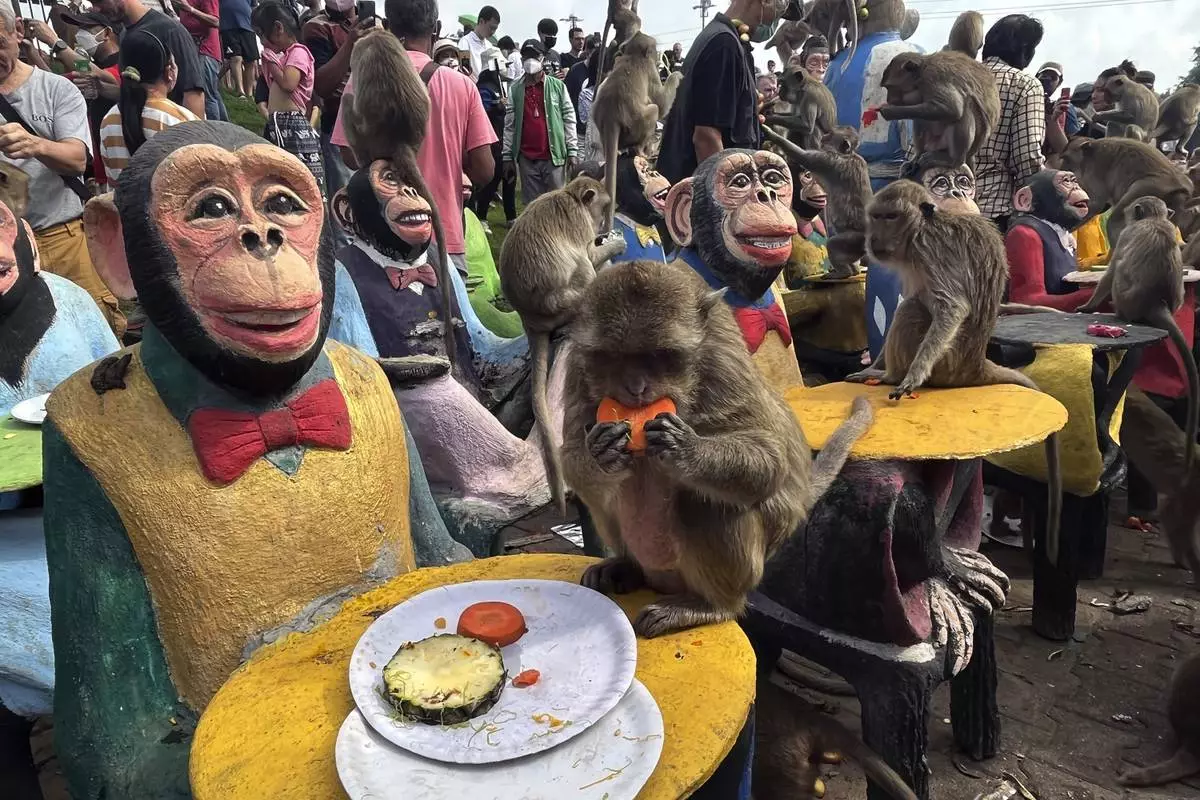
FILE - Monkeys eat fruit during a monkey feast festival in Lopburi province, Thailand. Sunday, Nov. 27, 2022. Thai wildlife officials laid out a plan on Wednesday, March 3, 2024, to bring peace to a central Thai town after at least a decade of human-monkey conflict. (AP Photo/Chalida EKvitthayavechnukul, File)
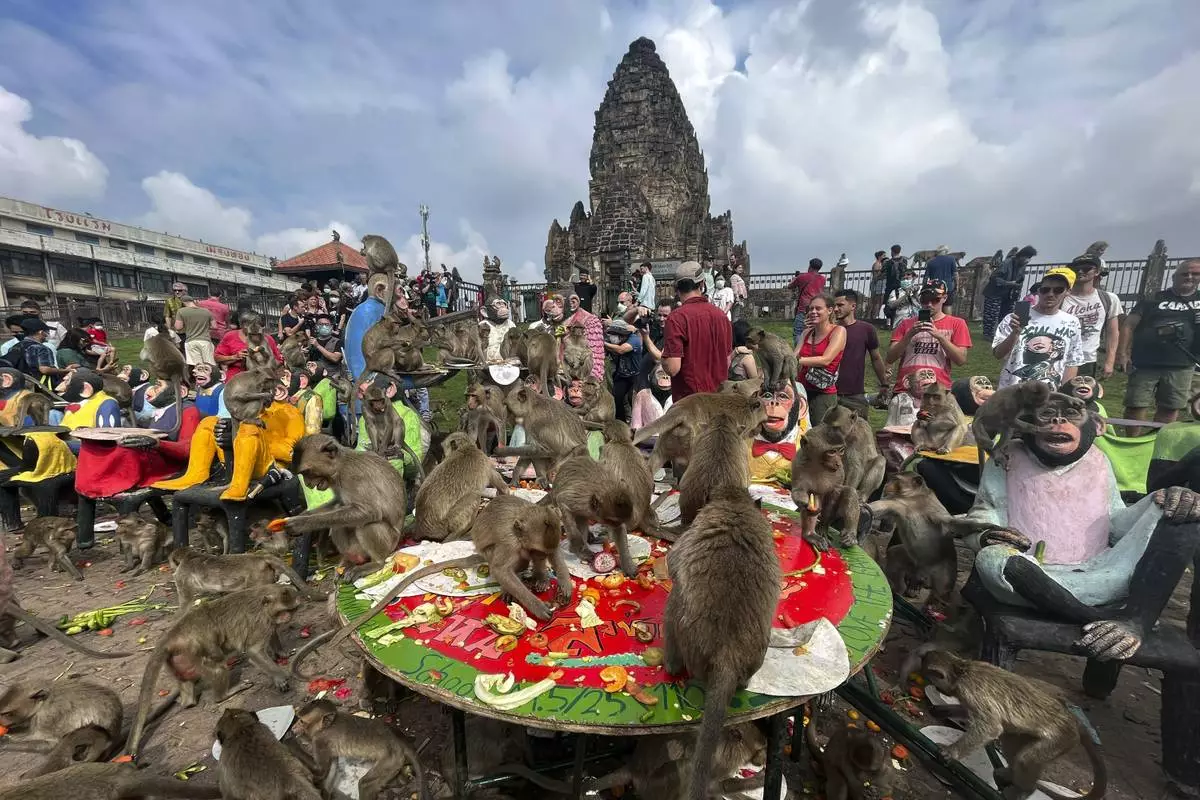
FILE - Monkeys eat fruit during monkey feast festival in Lopburi province, Thailand. Sunday, Nov. 27, 2022. Thai wildlife officials laid out a plan on Wednesday, March 3, 2024, to bring peace to a central Thai town after at least a decade of human-monkey conflict. (AP Photo/Chalida EKvitthayavechnukul, File)










